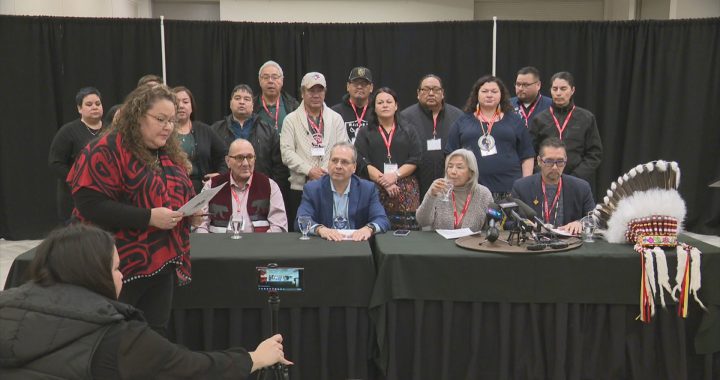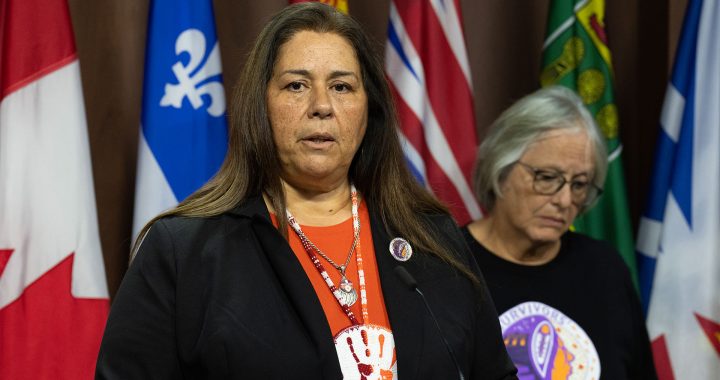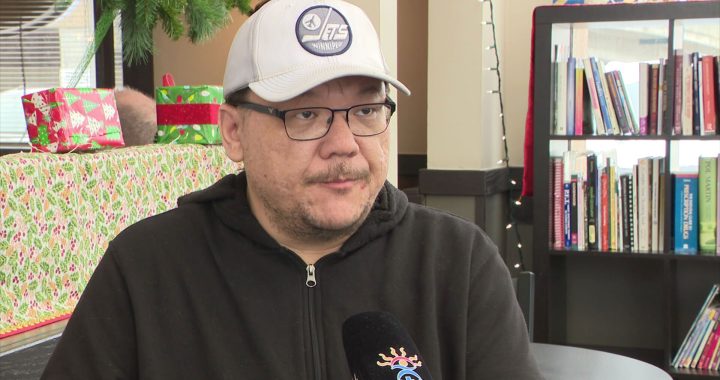When Jean La Rose was brought on as Chief Executive Officer of APTN the network was in a difficult spot.
It was 2002 and the broadcaster was still in its infancy.
It was also on the brink of going off the air.
“The first couple of weeks I was here, the bank called me over to let me know that they were about to pull the plug. We were out of money,” says La Rose.
“They kept returning cheques because we didn’t have the funds to pay for them and on and on and on. So the challenge was to get the bank to hold off,” he recalls.
APTN was nearly $6-million dollars in debt and the financial situation meant a lot of tough decisions had to be made.
During La Rose’s first year at the helm, a decision was made to cut back on programming.
Disastrous decision
La Rose admits, for a lot of producers “it was a disastrous decision. Many had counted on a renewed contract to maintain their business.”
“We didn’t want to cut on the news service because we felt that was an important one so that meant that all programming had to be put on hiatus for a year,” he says. “It also meant we had to come to an agreement with the bank on how we were going to repay.”
The drastic measures took a personal toll on La Rose, who recalls it being an “emotionally stressful” time.
“Those were tough, heart-wrenching calls to make,” he says.
While that may have been a low point for the network, there have been many milestones for the CEO who is leaving the network in December after 17 years.
One of the first was APTN’s participation in broadcasting the 2010 Winter Olympics.
“That, I think, was in some ways for us internally…a turning point,” says La Rose.
“When we launched, a lot of the other media…felt that APTN was, one of them called us a ‘guilt tax on Canadians’ because we had a subscriber fee. Another media called us a ‘social engineering experiment gone crazy,” recalls La Rose.
“So we had to prove ourselves in ways that others don’t have to,” he says.
Initially, APTN was only offered the Olympic Games’ opening and closing ceremonies “but we weren’t ready to accept that so we turned it down.
Olympic Games
“Our audience doesn’t deserve any less,” says La Rose.
The network wanted to broadcast events in Indigenous languages, as well as English and French. It ended up airing 14 to 15 hours a day, over the full 17 days of the Games.
To prepare, La Rose recalls how announcers needed to be trained to provide play-by-play and words needed to be created.
“There’s no traditional word for triple axle or no traditional word for snowboard,” he says.
This meant going back to Indigenous communities to discuss and decide on words that describe what they would be seeing.
La Rose says the reaction to the Olympics was “astounding.”
“We had people calling in tears saying I can’t believe I’m hearing my language at an international Olympic event. We had Elders thanking us. We had young people saying this validates my language,” he recalls.
“All of the sudden, the little network that couldn’t became the little network that could. And what the team here did is second to none. We’ve actually created history a few times when it comes to Indigenous achievements and that is certainly one of them.”
NHL games
La Rose says in some ways, the push to broadcast NHL games on APTN began shortly after the 2010 Olympics.
And years of “bugging” Rogers and Sportsnet finally paid off, he says, when APTN aired Rogers Hometown Hockey in Cree on March 24, 2019.
“I think it’s the type of event that will help open doors in our relationship with Canada,” says La Rose, adding “some people wrote to us saying, ‘I just tuned it in because I just wanted to hear what it sounded like but the guy was so exciting I watched the whole game.’”
La Rose says talks with Sportsnet about airing more NHL games continue.
“In an ideal world, certainly we’d like to have at least one game a week. Can we afford it? I’m not sure because obviously there is a cost to that,” says La Rose.
“So we’re looking at maybe one game a month to start. See how we can afford that, see how it goes, see how it plays out with our commentators. And if that ends up working out, well then we’d certainly look at how we can expand it and maybe even add other languages down the road.”
First Peoples Radio
Another milestone for APTN was launching First Peoples Radio in Toronto and Ottawa in 2018 to feature Indigenous music and news.
Initially, First Peoples applied for licenses in five cities.
La Rose says the reaction has been positive and is helping bring APTN into a medium that is still very strong in our communities.
“The goal down the road would be to have a more national presence. Add more cities with stations so we can better connect with people across the country,” he says.
“I’ve always been a very, very strong proponent that Indigenous people are the best ones to tell Indigenous stories.”
La Rose believes “other mainstream networks will tell our stories, but they will tell part of our stories or they will tell it from their perspective. They’ll look at it from an outside point of view.”
The addition of the ELMNT FM radio stations is only one of the ways APTN is trying to navigate a changing environment.
“Our audience is now splintered everywhere. They’re on their tablets, they’re on their laptops, they’re on their smartphones and we have to be everywhere. And that’s part of the reason for Elmnt and that’s part of the reason for Lumi,” says La Rose.
Part 2 of our Face to Face interview with Jean La Rose airs December 10.













